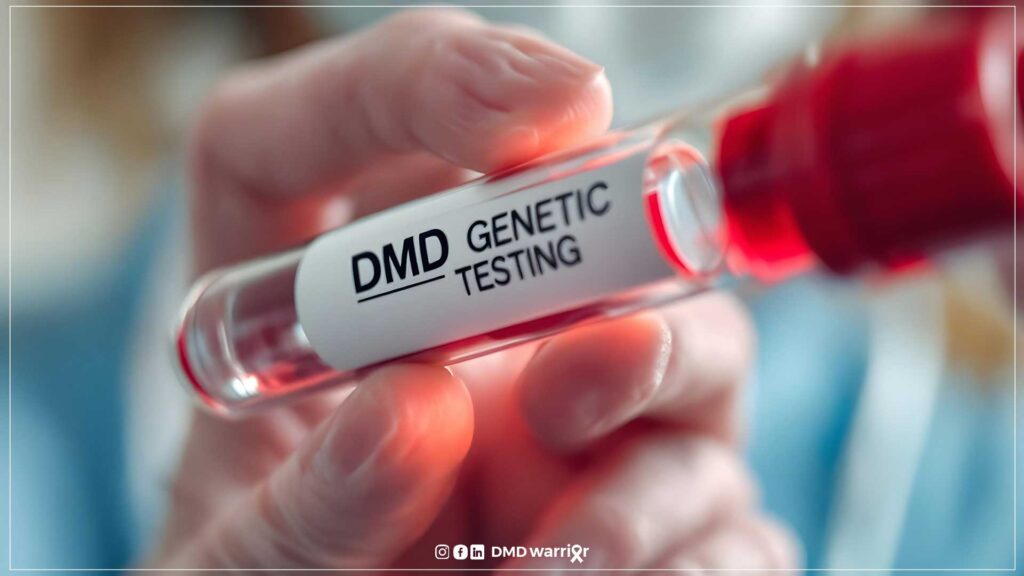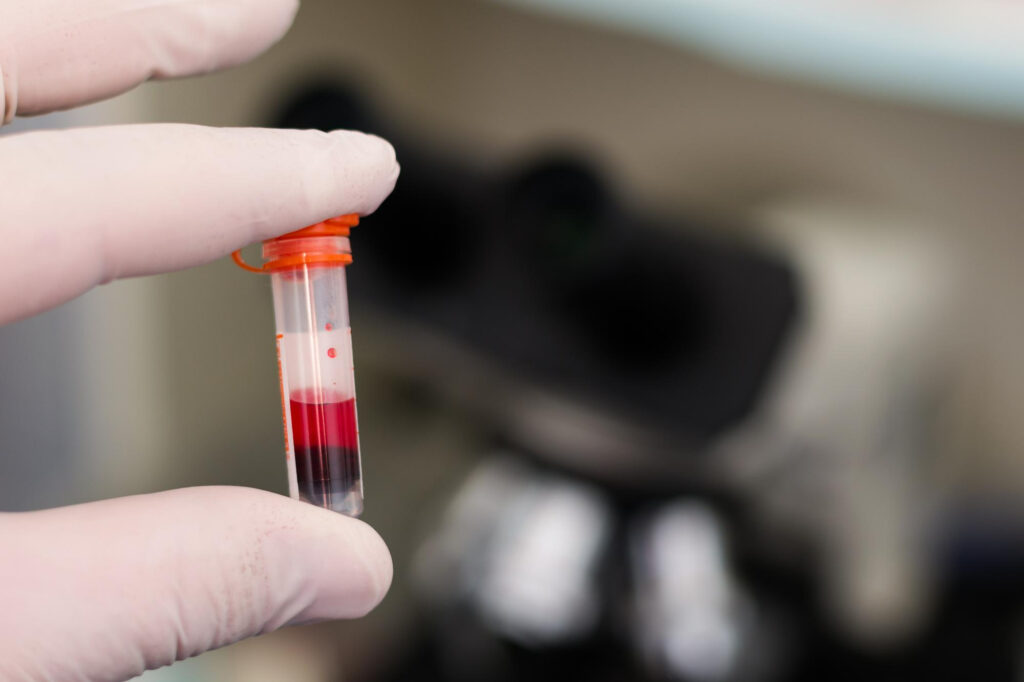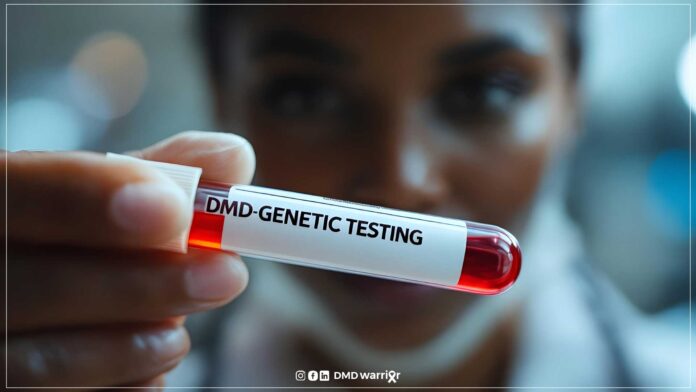DMD genetic testing for Duchenne muscular dystrophy involves analyzing a person’s DNA to look for mutations in the dystrophin gene. This gene is responsible for producing a protein that helps maintain the structure and function of muscle cells. Mutations in the dystrophin gene can result in the production of a faulty or nonfunctional dystrophin protein, leading to the muscle degeneration and weakness characteristic of DMD. [Read More: How do I Know if My Child has Muscular Dystrophy?]
By identifying these mutations through genetic testing, healthcare providers can confirm a diagnosis of DMD and provide information about the specific genetic changes present in an individual. This information can be useful for guiding treatment decisions, predicting disease progression, and informing family. [Read More: What is Creatine Kinase (CK)? What Does High Creatine Kinase Mean?]
Things You Need to Know About DMD Genetic Testing
Purpose of DMD genetic testing

The purpose of DMD genetic testing is to identify mutations in the dystrophin gene that are responsible for causing the disease. This information can help healthcare providers confirm a diagnosis of DMD and provide personalized treatment options for individuals with the condition. Additionally, genetic testing can also be used to predict the progression of the disease and help families make informed decisions about future family planning. Ultimately, DMD genetic testing plays a crucial role in improving the management and outcomes of individuals affected by this debilitating condition.
Importance of early detection and intervention
Early detection and intervention are key factors in improving the prognosis and quality of life for individuals with DMD. By identifying the disease at an early stage through genetic testing, healthcare providers can initiate appropriate interventions and therapies to slow the progression of muscle weakness and other symptoms. This can help delay the onset of complications and improve overall outcomes for patients with DMD. Additionally, early detection allows for early access to supportive care services and resources that can help individuals and their families cope with the challenges of living with a progressive neuromuscular disorder. Therefore, promoting awareness of the importance of early detection and intervention in DMD is crucial for optimizing patient care and outcomes.
Process of DMD genetic testing
Genetic testing is a key component in the diagnosis and management of DMD. It involves analyzing an individual’s DNA to identify mutations in the dystrophin gene that are responsible for causing the disorder. This process typically begins with a thorough medical history and physical examination to determine if symptoms are consistent with DMD. If DMD is suspected, genetic testing is recommended to confirm the diagnosis and provide valuable information about the specific genetic mutation present. Early genetic testing can also help identify carriers of the mutation within the family, allowing for genetic counseling and family planning decisions to be made.
Sample collection and analysis
Sample collection and analysis is a crucial step in the genetic testing process for DMD. Samples may be collected through a simple blood draw, cheek swab, or saliva sample. These samples are then sent to a laboratory where they undergo DNA sequencing to identify any mutations in the dystrophin gene. The analysis of the DNA sequence is a complex process that requires specialized equipment and expertise to accurately identify and interpret any genetic changes. Once the results are obtained, they are reviewed by a genetic counselor or healthcare provider who can explain the implications of the findings and help guide further treatment and management decisions.
How is DMD Genetic Testing Done
DNA Testing (Genetic Sequencing or Mutation Analysis)
- The most common test involves analyzing the DMD gene for mutations. This can be done using blood or saliva samples. The test looks for specific mutations that are known to cause DMD, such as deletions, duplications, or point mutations in the gene.
- Deletion/Duplication analysis: This is often the first step in testing. It checks for missing or extra copies of certain parts of the gene, as these are the most common types of mutations.
- Sequencing: If no deletions or duplications are found, a more detailed sequencing of the gene might be done to detect smaller mutations.
Learn More: Types of DMD Genetic Variants
Carrier Testing (for Family Members)
- Women who are carriers of the DMD gene mutation (they have one copy of the mutated gene) can also undergo genetic testing. This is important for family planning and understanding the risk of passing the condition to offspring.
Prenatal Testing
- Genetic testing during pregnancy can be done to determine if a fetus has inherited the DMD mutation, especially if there is a known family history of the condition.
Counseling and interpretation of results
Genetic testing can encompass a variety of techniques, including Polymerase Chain Reaction (PCR) and sequencing, which can provide valuable insights into an individual’s genetic makeup. After undergoing testing, individuals may benefit from genetic counseling to help them understand and interpret their results. Genetic counselors can offer guidance on the implications of test findings and help individuals navigate the complex information presented to them. By working closely with healthcare providers, genetic counselors ensure that individuals receive personalized care and support based on their unique genetic profile.
Benefits of DMD genetic testing

Diagnosis: The genetic test confirms whether a person has DMD and the specific mutation involved. This is crucial for proper management and care.
Treatment Decisions: Early diagnosis can lead to better management of the disease and allow for interventions to help slow its progression.
Family Planning: Carrier testing can help family members understand their genetic risks and make informed choices regarding reproduction.
Early diagnosis and treatment planning
By identifying the specific genetic mutations causing the condition, healthcare providers can tailor treatment strategies to target the underlying cause of the disease. This personalized approach can help slow the progression of DMD and improve quality of life for patients. Additionally, early intervention can help address potential complications and comorbidities associated with DMD, such as respiratory and cardiac issues. Therefore, genetic testing plays a crucial role in the comprehensive care of individuals with DMD.
Carrier testing for family members
By identifying carriers within a family, healthcare providers can offer genetic counseling and support to help individuals understand their risk of passing on the condition to future generations. This information can empower family members to make informed decisions about family planning and reproductive options. Additionally, carrier testing can help identify individuals who may be at risk for developing symptoms of DMD later in life, allowing for early intervention and proactive management of the condition. Overall, genetic testing and carrier testing are essential tools in the management of DMD and can greatly impact the health and well-being of individuals and their families.
Prenatal testing for at-risk pregnancies
Prenatal testing can provide valuable information about the health of the fetus and help parents make decisions about their pregnancy and future care for their child. By identifying DMD in utero, parents can work with healthcare providers to develop a comprehensive care plan and ensure that the child receives the necessary support and treatment from the moment they are born. Prenatal testing can also help families prepare emotionally and mentally for the challenges that come with raising a child with DMD. Overall, prenatal testing plays a crucial role in the early detection and management of DMD, ultimately improving outcomes for both the child and their family.
Learn More: Genetic Causes of Duchenne Muscular Dystrophy
Summary of key points for DMD genetic testing
Duchenne muscular dystrophy is a genetic disorder that primarily affects boys, causing progressive muscle weakness and loss of function. Genetic testing is crucial for diagnosing this condition early on, as it can help guide treatment options and provide valuable information for families and healthcare providers. By identifying the specific genetic mutation responsible for Duchenne, individuals can receive personalized care and support to manage their symptoms and improve their quality of life.



